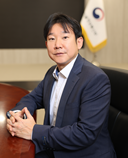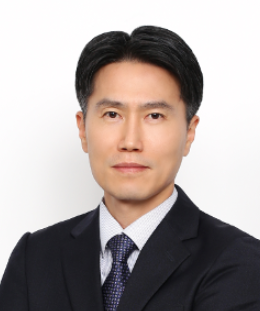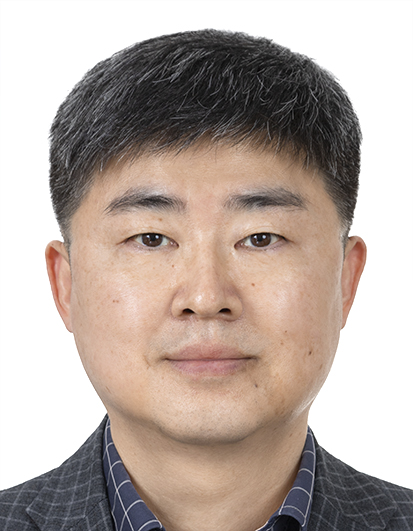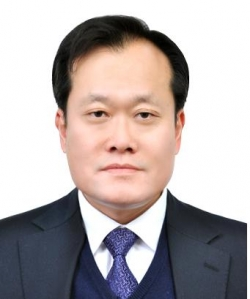
-
2025 Biohealth Policy Forum: KDRA InnoPol – Biohealth Innovation Consortium on AI and Big Data Utilization
<AI Bio Expansion Policy> 2025.08.27(15:35 - 16:00) | 3F Conference Room 308 Ministry of Science and ICT Hyukmo Nam, Director of Advanced Biotechnology Division Detail View -
The King of Ayurveda ; KSM-66 Ashwagandha with the proven science and how people would benefit from 2025.08.26(10:30 - 11:00) | 3F Conference Room 308 Kolmar BNH Sung Jin Lee, General Manager Detail View
-
2nd Annual Seminar of the KDRA Microneedle Convergence Research Society 2025
<Quality Considerations for Microneedle Pharmaceuticals> 2025.08.28(15:00 - 15:30) | 3F Conference Room 308 National Institute of Food and Drug Safety Evaluation (NIFDS) Jungyoon Choi, Senior Research Officer Detail View -
2nd Annual Seminar of the KDRA Microneedle Convergence Research Society 2025
<FDA OTC Approval Strategy for Microneedle Formulations> 2025.08.28(14:30 - 15:00) | 3F Conference Room 308 SmallLab Jinwook Lee, Director Detail View -
2nd Annual Seminar of the KDRA Microneedle Convergence Research Society 2025
<Development and Challenges of Microneedle Patch-Type BCG Vaccine> 2025.08.28(14:00 - 14:30) | 3F Conference Room 308 SNvia Semin Kim, Executive Director Detail View -
2nd Annual Seminar of the KDRA Microneedle Convergence Research Society 2025
<Microneedle-Based Tumor Microenvironment Modulation Technology> 2025.08.28(13:30 - 14:00) | 3F Conference Room 308 CURSUS BIO Jaehyun Kim, Senior Researcher Detail View -
2nd Annual Seminar of the KDRA Microneedle Convergence Research Society 2025
<Development and IND Approval Strategy for Microneedle Formulations> 2025.08.28(11:30 - 12:00) | 3F Conference Room 308 MEDITIP Yangsoo Park, CEO Detail View -
2nd Annual Seminar of the KDRA Microneedle Convergence Research Society 2025
<Nonclinical Study Strategies and Considerations for Microneedle Formulations> 2025.08.28(11:00 - 11:30) | 3F Conference Room 308 HLB bioCode Taewon Jeon, Executive Director Detail View -
2nd Annual Seminar of the KDRA Microneedle Convergence Research Society 2025
<Current Status of Overseas Regulations and the Need for Standardization of Microneedle Formulations> 2025.08.28(10:30 - 11:00) | 3F Conference Room 308 Korea Drug Research Association (KDRA) Heonje Cho, Managing Director Detail View
308D


| Title | 2025 Biohealth Policy Forum: KDRA InnoPol – Biohealth Innovation Consortium on AI and Big Data Utilization <AI Bio Expansion Policy> |
|---|---|
| Date | 2025.08.27(15:35 - 16:00) | 3F Conference Room 308 |
| Organization | Ministry of Science and ICT |
| Speaker | Hyukmo Nam, Director of Advanced Biotechnology Division |
Speaker & Lecture Information
[Brief Introduction of Seminar]
AI is emerging as a new language of life sciences, offering a core technology to understand complex biological phenomena and overcome the challenges of lengthy and high-cost drug development. With breakthroughs such as AlphaFold and generative AI for protein design accelerating global innovation, international competition has risen to a strategic race for technological leadership. Looking ahead, AI-powered biotechnology is expected to drive paradigm shifts across all areas of biohealth—including drug discovery, precision medicine, and green biotechnology—enhancing public health while fostering new growth industries. Ultimately, as a “next strategic technology,” AI in biotechnology will serve as a key engine to secure Korea’s future technological sovereignty and global leadership.
[Brief Introduction of Speaker]
Hyukmo Nam, Director of the Advanced Biotechnology Division at the Ministry of Science and ICT, is responsible for establishing national R&D policies in biotechnology, including basic research, AI-driven bio research, drug discovery, brain research, and infectious disease studies. He also oversees the development and refinement of legal and institutional frameworks in the bio sector, including the Biotechnology Promotion Act.
308A


| Title | The King of Ayurveda ; KSM-66 Ashwagandha with the proven science and how people would benefit from |
|---|---|
| Date | 2025.08.26(10:30 - 11:00) | 3F Conference Room 308 |
| Organization | Kolmar BNH |
| Speaker | Sung Jin Lee, General Manager |
Speaker & Lecture Information
308F


| Title | 2nd Annual Seminar of the KDRA Microneedle Convergence Research Society 2025 <Quality Considerations for Microneedle Pharmaceuticals> |
|---|---|
| Date | 2025.08.28(15:00 - 15:30) | 3F Conference Room 308 |
| Organization | National Institute of Food and Drug Safety Evaluation (NIFDS) |
| Speaker | Jungyoon Choi, Senior Research Officer |
Speaker & Lecture Information
[Brief Introduction of Seminar]
Micro-needle drugs refer to drugs that deliver active ingredients through the skin using microscopic needles to achieve local or systemic effects. With the increasing demand for micro-needle drug development, the Ministry of Food and Drug Safety published the “Micro-needle Drug Quality Guidelines (Guidebook for Applicants)” in 2021. This guide outlines the quality submission requirements and considerations when developing pharmaceuticals using the micro-needle drug delivery method. In this lecture, we will introduce the current status of micro-needle pharmaceuticals under development and explain the quality considerations and common corrective measures for micro-needle product development based on the guide.
[Brief Introduction of Speaker]
Choi Jeong-Yoon, Health Research Officer, joined the Ministry of Food and Drug Safety in 2003 and has been engaged in quality-related approval reviews, research and development, and testing of biopharmaceuticals (recombinant drugs) and synthetic drugs. Her key achievements include contributing to the introduction of the Common Technical Document (CTD) system for biopharmaceuticals in Korea, the signing of the Korea-Switzerland GMP Mutual Trust Agreement, and the national approval of COVID-19 mRNA vaccines. Currently, she is responsible for quality review of advanced pharmaceuticals such as synthetic peptide drugs, synthetic oligonucleotides, and microneedle drugs.
308F


| Title | 2nd Annual Seminar of the KDRA Microneedle Convergence Research Society 2025 <FDA OTC Approval Strategy for Microneedle Formulations> |
|---|---|
| Date | 2025.08.28(14:30 - 15:00) | 3F Conference Room 308 |
| Organization | SmallLab |
| Speaker | Jinwook Lee, Director |
Speaker & Lecture Information
[Brief Introduction of Seminar]
Micro-needle formulations are considered a necessary dosage form for entering the US OTC drug market due to their unique drug delivery method and expected effects. However, due to the special nature of the dosage form, it is difficult to clearly meet the evaluation criteria of the FDA OTC approval system, and strategic preliminary review is essential. This presentation aims to propose strategic directions for obtaining FDA OTC drug approval for microneedle formulations. It will explain key elements such as OTC monograph application, quality standards, manufacturing facility requirements, and documentation criteria based on OTC GMP inspection content for microneedle production facilities, and share practical strategies and considerations for implementation.
[Brief Introduction of Speaker]
After earning his doctorate from Korea University's Graduate School of Life Sciences, Jin-Wook Lee conducted research on biopharmaceuticals and microneedle formulations. He then expanded his field to quality control, performing quality control tasks such as establishing new GMP systems, and currently serves as the quality control manager at Small Lab. Recently, he successfully prepared for and responded to an FDA OTC GMP inspection of a microneedle patch production facility by appropriately combining research and quality control practices.
308F


| Title | 2nd Annual Seminar of the KDRA Microneedle Convergence Research Society 2025 <Development and Challenges of Microneedle Patch-Type BCG Vaccine> |
|---|---|
| Date | 2025.08.28(14:00 - 14:30) | 3F Conference Room 308 |
| Organization | SNvia |
| Speaker | Semin Kim, Executive Director |
Speaker & Lecture Information
[Brief Introduction of Seminar]
Tuberculosis is one of the most deadly infectious diseases in human history. In South Korea, there are 30,000 new cases every year, ranking first among OECD countries. BCG is a safe tuberculosis prevention vaccine that has been in use since its strain was first established in 1921. In South Korea, there are two types of vaccination methods: intradermal (free) and stamp (paid). The intradermal type has excellent efficacy but is distributed in 10-dose vials, posing risks of contamination and difficulties in precise dosage delivery during vaccination. The stamp type has the advantage of leaving minimal vaccination scars but is criticized for its low immune induction capacity and uncertainty in dosage. This lecture aims to present the development and efficacy evaluation of a single-dose BCG microneedle patch that combines the advantages of the intradermal and stamp types into a microneedle formulation, enabling excellent immune induction, no vaccination scars, and precise intradermal dose delivery. To this end, this lecture will focus on the manufacturing process and challenges of the micro-needle-type live BCG vaccine patch, introducing research results on the micro-needle coating platform for intradermal quantitative vaccine delivery, efficacy evaluation of the vaccine patch in guinea pigs, and storage stability.
[Brief Introduction of Speaker]
Kim Se-min, Executive Vice President, earned his Ph.D. in Engineering from Dong-A University's Department of Mechanical Engineering and has successfully completed numerous process development projects in general manufacturing, fine chemicals, and medical devices. He currently oversees new product development at SNVIA, leading the development of cutting-edge medical products such as microneedle patch-type drugs and photopolymerization medical devices. As a project management (PM) expert, he focuses on establishing efficient development processes to enhance the success rate of new product development projects in the medical field by integrating various international standards such as ISO 13485, ISO 9001, and ISO 22716, along with regulatory science (RA) perspectives.
308F


| Title | 2nd Annual Seminar of the KDRA Microneedle Convergence Research Society 2025 <Microneedle-Based Tumor Microenvironment Modulation Technology> |
|---|---|
| Date | 2025.08.28(13:30 - 14:00) | 3F Conference Room 308 |
| Organization | CURSUS BIO |
| Speaker | Jaehyun Kim, Senior Researcher |
Speaker & Lecture Information
[Brief Introduction of Seminar]
This lecture will introduce the concepts and latest research trends in tumor microenvironments and cancer immunotherapy, which pose challenges in tumor treatment. Additionally, we aim to present the limitations of current drug delivery platforms for anticancer immunotherapy, thereby providing an opportunity to discuss future research directions by enhancing the strengths of microneedles as an anticancer immunotherapy platform and incorporating advanced techniques. This will include the concept of the tumor microenvironment, the principles of anticancer immunotherapy, the limitations of existing anticancer immunotherapy methods, the potential application of microneedles in anticancer immunotherapy, the latest research trends in cancer immunotherapy using microneedles, and research and development strategies for the future commercialization of cancer immunotherapy microneedles.
[Brief Introduction of Speaker]
Dr. Jae-Hyun Kim earned his master's and doctoral degrees from Hanyang University's Department of Biotechnology with a thesis titled “Development of Next-Generation Nanostructure Technology for Cancer Immunotherapy.” Since 2024, he has been working as a senior researcher at Cursus Bio, developing technologies such as gene delivery therapies using siRNA and mRNA, and peptide antigen delivery vaccine nano platforms. He has published numerous papers in top-tier international journals in the fields of biomaterials and drug delivery, including Advanced Materials, and has garnered significant global attention. Leveraging this extensive research experience, he is currently continuing his research on the commercialization of cancer immunotherapy based on micro-needle platforms at Cursus Bio.
308E


| Title | 2nd Annual Seminar of the KDRA Microneedle Convergence Research Society 2025 <Development and IND Approval Strategy for Microneedle Formulations> |
|---|---|
| Date | 2025.08.28(11:30 - 12:00) | 3F Conference Room 308 |
| Organization | MEDITIP |
| Speaker | Yangsoo Park, CEO |
Speaker & Lecture Information
[Brief Introduction of Seminar]
Drug development is a highly technology-intensive field that requires a long period of time and considerable effort, so thorough preparation and strategy formulation must be established from the initial stages. In particular, micro-needle formulations present challenges due to their unique characteristics and the lack of clear guidelines, causing many companies to encounter difficulties in development. To minimize such trial and error, it is necessary to clearly establish clinical and regulatory strategies from the initial stages and proceed with development accordingly. In this lecture, we will examine the regulatory strategies and procedures required for micro-needle formulation development through relevant regulations and case studies, aiming to collectively explore the most effective approach to strategic planning. Additionally, we will review the essential regulations, considerations at each stage, and strategic planning directions that employees involved in micro-needle formulation development must understand.
[Brief Introduction of Speaker]
Park Yang-soo graduated from Chungbuk National University College of Pharmacy and received his master's and doctoral degrees from the same university. He worked in development and licensing at Cheil Pharmaceutical and Hanmi Pharmaceutical. Since then, he has been helping many venture companies and small and medium-sized pharmaceutical companies with their drug development through various licensing consultations at Meditip. Based on his experience working at the clinical trial institution DT&CRO, he provides comprehensive consulting services covering all aspects of licensing and clinical trials. Additionally, during his tenure at Hanmi Pharmaceutical as the RA Team Leader, he gained experience in the development of various improved new drugs, including the first improved new drug in Korea, Amozalatan, as well as salt-modified drugs, isomer drugs, and combination drugs. He has also directly obtained IND approval for technologically leading products such as Orascovery, an oral anticancer drug platform technology, and Lapscovery, a sustained-release recombinant protein platform. Currently, he continues to provide comprehensive consulting services for new drug development and regulatory affairs support to biotech startups and pharmaceutical companies. Additionally, through various external lectures, he actively contributes to the development of the domestic pharmaceutical industry and the enhancement of the pharmaceutical sector's capabilities.
308E


| Title | 2nd Annual Seminar of the KDRA Microneedle Convergence Research Society 2025 <Nonclinical Study Strategies and Considerations for Microneedle Formulations> |
|---|---|
| Date | 2025.08.28(11:00 - 11:30) | 3F Conference Room 308 |
| Organization | HLB bioCode |
| Speaker | Taewon Jeon, Executive Director |
Speaker & Lecture Information
[Brief Introduction of Seminar]
Recently, the development of micro-needle-based drugs and other products has been rapidly expanding in various fields, such as peptides, vaccines, and biological agents, based on their advantages in drug delivery precision, user convenience, and reduced skin pain. Therefore, there is a need for the design, evaluation, and regulatory response strategies of non-clinical trials suitable for these products. This lecture aims to enhance regulatory compliance capabilities by explaining key considerations in the development process of microneedle-based products, including the design of nonclinical trials and strategies for securing core data required for IND submission. To achieve this, the lecture will outline the characteristics of microneedle products and introduce nonclinical trial strategies based on an analysis of domestic and international guidelines.
[Brief Introduction of Speaker]
Jeon Tae-won earned his doctorate from Keimyung University's Department of Public Health and subsequently served as a research professor at Yeungnam University's College of Pharmacy. At Biotoxtech, he served as the GLP Operations Manager, contributing to the establishment and management of non-clinical safety evaluation systems. He also worked at the GLP Center at Hoseo University and is currently the Operations Manager and GLP Testing Division Director (Senior Manager) at HLB BioCode, leading the company's core safety evaluation capabilities. Based on this expertise, he actively participates in advisory and committee activities in major domestic healthcare and GLP safety evaluation fields, including the Korea Food and Drug Safety Evaluation Institute, Seoul Asan Hospital, the Korean Society of Toxicology, and the Health Infrastructure Division of the Health Care Technology Policy Review Committee.
308E


| Title | 2nd Annual Seminar of the KDRA Microneedle Convergence Research Society 2025 <Current Status of Overseas Regulations and the Need for Standardization of Microneedle Formulations> |
|---|---|
| Date | 2025.08.28(10:30 - 11:00) | 3F Conference Room 308 |
| Organization | Korea Drug Research Association (KDRA) |
| Speaker | Heonje Cho, Managing Director |
Speaker & Lecture Information
[Brief Introduction of Seminar]
The microneedle platform is a minimally invasive drug delivery system that can deliver drugs, vaccines, and biological agents transdermally, and its high patient compliance and clinical efficacy have led to a wide range of potential applications. However, differences in product classification systems, quality requirements, pre-review items, and approval procedures among jurisdictions create substantial regulatory barriers to product development, global commercialization, and export strategy planning. This lecture will compare and analyze the regulatory frameworks for microneedles in major countries such as the United States (FDA), Europe (EMA/MDR), Japan (PMDA), and China (NMPA), and discuss the impact of these differences on multinational clinical trial design, approval strategies, and manufacturing compliance. In particular, we will examine issues such as duplicate data submissions, approval delays, and the application of dual standards in manufacturing processes caused by regulatory inconsistencies, and propose directions for establishing joint guidelines.
[Brief Introduction of Speaker]
Heonje Cho, Head of Research and Development Promotion (Managing Director), graduated from Dongguk University Graduate School of Business Administration (MBA) and completed a PhD in Regulatory Science (Innovation Policy Studies) at Dongguk University Graduate School of Food and Medical Product Regulatory Policy. He has been involved in the formulation of laws, systems, and policies related to the promotion and support of the pharmaceutical and biotechnology industry, as well as national R&D planning, across major government agencies such as the Ministry of Science and ICT, the Ministry of Industry, Trade, and Energy, and the Ministry of Health and Welfare, as well as local governments. He has also been involved in the establishment and operation of the Pharmaceutical Industry Technology Transfer Center under the Association, the first private technology transfer organization in Korea, He has also been actively involved in fostering the pharmaceutical and biotechnology industry and strengthening its international competitiveness through his activities as a secretary for the Pharmaceutical and Biotechnology Business Development Research Society and the Microneedle Fusion Research Society. Additionally, he serves as a non-executive director of the Korea Pharmaceutical Safety Management Institute, a board member and chairman of the Industry-Academia Cooperation Committee of the Korean Society of Regulatory Science, an investment attraction committee member of Goyang Special Self-Governing City, and an adjunct professor at the Department of Pharmaceutical and Biohealth Industry, Graduate School of Dongguk University.










